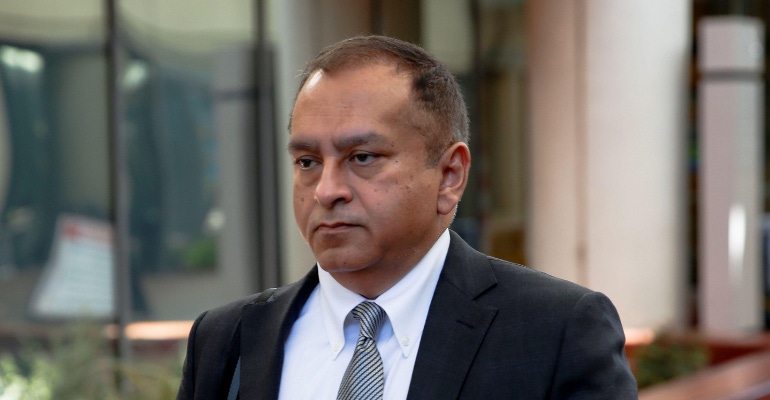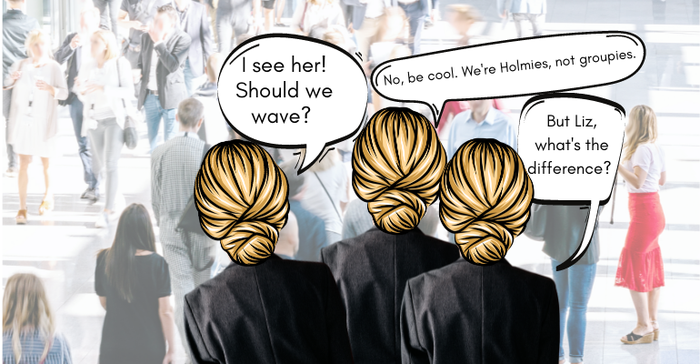Closing arguments were heard in the fraud trial of Theranos’ chief operating officer on Tuesday.
June 22, 2022

Last September, Theranos Founder Elizabeth Holmes went to trial facing multiple fraud and conspiracy charges related to her misrepresentations of the company's blood testing technology – and it was an absolute media circus, complete with cosplay fans (a.k.a. the Holmies) and her father-in-law's odd attempts to sway public opinion in her favor. Holmes was found guilty in January on four counts of fraud and awaits sentencing.

Act two of the Theranos courtroom drama kicked off in March with the fraud trial of Holmes' former lover and business partner, Ramesh "Sunny" Balwani. Yet, throughout most of Balwani's trial there was a glaring lack of public interest. Many online spectators questioned if gender was the reason, which makes a lot of sense. As pointed out earlier this week in an editorial regarding Facebook's Sheryl Sandberg, when female executives screw up, it tends to draw significantly more interest than when their male counterparts screw up.
However, another explanation for the stark difference in media coverage of the two Theranos fraud trials is this: It was like watching a two-act play where the second act is nearly identical to the first act, but with a different lead character and a bunch of inexplicable intermissions. The prosecution introduced all the same witnesses and much of the same evidence in both trials, and we journalists tend to nod off when a story is a total repeat of one we just spent months covering.
Interest in Balwani's trial picked up dramatically on Tuesday though, as the jury heard the start of closing arguments (which are expected to wrap up Wednesday). Dorothy Atkins, a Law360 reporter who has diligently covered both Theranos fraud trials, noted Tuesday that for the first time since opening arguments in Balwani's criminal fraud trial, most of the courtroom gallery was full of spectators. To put it into perspective, Atkins told MD+DI via Twitter that aside from her and her Law360 colleague, there's only one other reporter who has been present for the bulk of Balwani's trial. Below are five interesting takeaways from Tuesday's closing arguments, as reported by Atkins.
5 Quick takes from Theranos Act 2 (Balwani's fraud trial)
Closing arguments began on the summer solstice, exactly six months after a jury began deliberating criminal charges against Holmes (winter solstice). Seems appropriate, given Balwani's nickname, "Sunny."
Assistant U.S. Attorney Jeffrey Schenk told the jury that Balwani fired Theranos lab directors who disagreed with him and replaced them with "absentee" lab directors, including his dermatologist, who weren't at Theranos and who "did not express dissent."
Anyone who has ever listened to a public company's earnings call is familiar with the common disclaimer of forward-looking statements that basically say any financial projections provided during the call are based on the company's best estimate at the time and could change. However, when Balwani's lawyers argued that his Theranos financial projections were "aspirational" and not exact, Schenk countered by telling the jury to look at how "wildly off" those projections were. The numbers were off by a huge margin, not just a few dollars, he said, according to Atkins.
Schenk wrapped up the government's closing arguments by noting that Balwani was not expecting a jury to see his emails and text messages showing his fraud. Atkins quotes him as saying, "the biggest threat to fraud is the truth."
Balwani's lawyers argued that the text messages shown during the trial were cherry picked. They also pointed out that there was audio of a call Holmes had with investors, but the prosecution chose not to play that audio for the jury. Atkins noted that the judge would not allow Balwani's lawyers to play the call unless the government played it first.
About the Author(s)
You May Also Like




